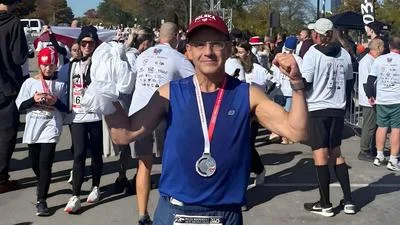Advocate Trinity Hospital issued the following announcement on Dec. 27.
You’ve likely heard a lot of different advice when it comes to your health and fitness regimen. Whether it’s the key to losing weight or the best exercise for busting that belly fat, there is no lack of information out there about the best things to do.
But it’s important to remember that not all of them will work for every individual. While there are some “rules” that have been studied, tested and proven effective, as a personal trainer and nutrition specialist at Advocate Good Shepherd Health and Fitness Center, I still recommend experimenting with different styles of training to see what’s effective for your body. The key is to find a fitness and nutrition plan that you can stick with and has proven effective for your unique body.
With so much information circulating about hard and fast musts for fitness, it’s also important to know which ones are myths. Here are six I hear time and time again.
Myth 1: You should never eat before a morning workout.
The topic of fasting for early-morning cardio has been debated and studied for a while now, but there isn’t sufficient evidence to support the claim that you can increase the amount of fat burned during and after your workout if you skip breakfast. As a personal trainer, my advice is to ignore this rule. It’s important to always fuel your body properly before physical activity to ensure you have the energy to work out at a high enough intensity to produce results.
Myth 2: You should only stick to one type of workout.
While there is a benefit to sticking to similar exercises for a six-to-eight week program because you can objectively measure progress from start to finish, it’s also important to note that your body will eventually reach a plateau once it becomes comfortable with your current routine. If your program consists of mostly cardiovascular exercises, adding strength training into your program will increase your power output and the endurance of your muscle. If your program consists mostly of strength training, adding cardiovascular exercises will improve the efficiency of your heart and circulatory system and increase the amount of available oxygen in your working muscles.
Myth 3: You shouldn’t do anything that resembles a workout on your rest day.
While it is a good idea to not do heavy lifting every day, you don’t have to avoid the gym all together on your “off” days. On rest days, you can still perform some light-intensity cardio, participate in an active hobby or help your muscles recover faster by foam rolling and stretching.
Myth #4: Logging miles on the treadmill is the best way to burn calories.
Did you know there are other forms of exercise that burn more calories per hour than your typical workout on the treadmill? Rowing burns more calories because you are using more than 80 percent of the muscles in your body. Regardless of which machine you choose, you will burn more calories during your workout if you train with intervals instead of setting a comfortable, steady pace. Start off simple and alternate between high and low intensities every 30 seconds; each week, increase the time you spend in the high interval or decrease the time you spend in the low interval. It’s also important to know that while strength training may burn less calories during your workout, in the long term, it increases the amount of calories you burn throughout the day.
Myth 5: You have to be sore after a workout.
Soreness is not the best indicator of a good workout. Your goal doesn’t have to be working out until you can’t raise your arms or walk up the stairs. Aim for lifestyle goals like getting to the gym four times a week or drinking five bottles of water a day. The goal should be consistency and progressively trying to improve your health and wellness over the course of your life.
Myth 6: You should never exercise at night.
There are some people who have trouble falling asleep if they work out in the evening, but others have no trouble at all. If you’re having trouble sleeping after an evening workout, try to keep track of your caffeine intake and cut yourself off at a consistent hour each day so your body can adjust to a schedule. Exercise, regardless of what time of day you perform it, has been proven to promote a higher quality of sleep.
Original source can be found here.

Source: Advocate Trinity Hospital






 Alerts Sign-up
Alerts Sign-up